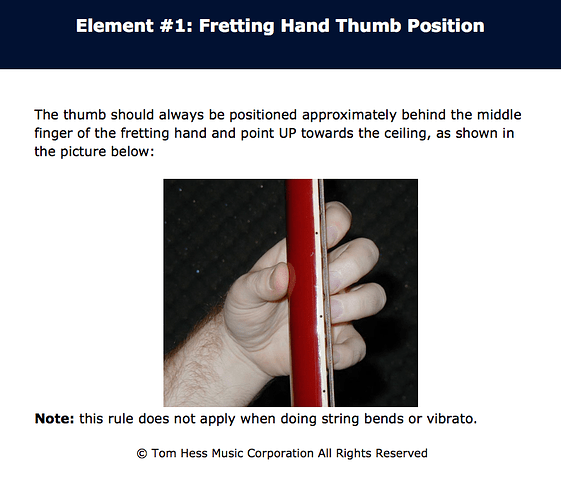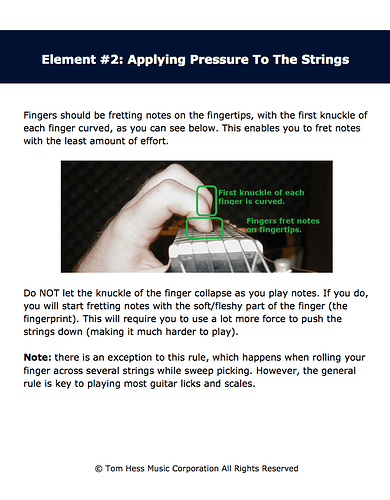Without knowing a thing about your playing or posture, I’d still say with 90% confidence that they are.
I had some wrist/tendon problems back in college and spent a long time figuring it out and kind of developing some thoughts around how to avoid wrist problems on guitar. Since becoming a member here, I’ve had to update a lot of that thanks in large part to conversations with members here - Tom, for sure, but a couple others have made observations that really changed how I approached this problem. It’s not that my old thinking was wrong, exactly, so much that it was extremely dependent on other factors of my playing posture, how high I wear guitars, etc, and I didn’t really understand how these other factors were informing my own choices.
Without going further into it, though, the less wrist angle you can have, the better off you’ll be. You can change a lot of variables to get there - raising or lowering your strap, increasing or decreasing the angle you sling the guitar at, changing the orientation and angle of your hand with respect to the fretboard, whatever, just find some way to play with a reasonably straight wrist, and adapt to spend most/all of your playing time in this orientation (and don’t be afraid to explore multiple solutions - it was eye opening to me when someone pointed out that Slash slung his guitars incredibly low which allow him to riff away comfortably with them held pretty horizontally, but when it came time to take a solo he’d often shift the guitar to an extremely steep angle that would allow him to play lead licks with occasionally wider stretches, without compromising his wrist angle any. It’s actually kind of amazing the number of different ways different players have developed a playing position that allows them to maintain a comfortable wrist position while playing with wildly different postures.
Something @Tom_Gilroy has hypothesized that I’m pretty sure he’s right on, is a position that allows as little wrist tension is possible is likely to make your fretting hand faster because you’re starting and finishing movements from a neutral, relaxed position, and not overcoming some initial tension. Anecdotally, being in the process of making some tweaks to my own position, it certainly feels like i’m feeling a greater fluidity in my playing when I’m consciously holding a more optimal position than when I’m not thinking about it.









